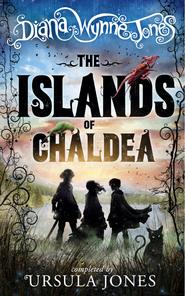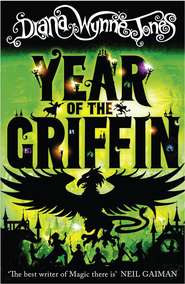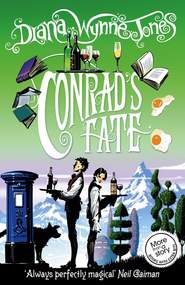По всем вопросам обращайтесь на: info@litportal.ru
(©) 2003-2024.
✖
Drowned Ammet
Настройки чтения
Размер шрифта
Высота строк
Поля
The one Mitt’s father joined was called the Free Holanders. It was composed mostly of fishermen who felt there should be more justice and better living for the ordinary people of Holand. Their ambition was to have the whole city rise against the Earl, and, as far as Milda knew, they had never done much except talk about it. But when Milda and Mitt had been turned out of Dyke End, Mitt’s father was so angry that he had tried to stir the Free Holanders to action of some kind. Why not set fire to one of the Earl’s warehouses, he said, to show the Earl they meant business?
Canden and the other younger Free Holanders were delighted by the idea. It would hit Hadd where it hurt, they said – right in the moneybags. But the older members, particularly Siriol, Dideo and Ham, were clean against it. If they fired a warehouse, they said, the Free Holanders would be hunted down by Harchad’s men, and how would that help the city to rise and overthrow the Earl? The society split in half over it. The younger members went with Mitt’s father to fire the warehouse. The older members stayed at home. And when the younger ones reached the warehouse, Harchad’s men were waiting for them. All that Milda knew beyond that was that someone had managed to start a fire even so and that no one had come back from it except Canden to say that Siriol, Dideo and Ham had informed on them. And Canden was dead too.
Mitt considered all this. “Why did Siriol and them inform, though?”
The crease of worry down Milda’s face drew into a tighter seam. “Because they were frightened, Mitt, like I am now.”
“Frightened what of?” Mitt asked.
“Harchad’s soldiers,” Milda said, shivering. “They might come banging at this door any moment now.”
Mitt considered what he knew of soldiers. They were not so frightening. They brought you home when you were found wandering in the Flate. “How many soldiers are there? More than everyone else in Holand?”
In spite of her misery, Milda smiled. To Mitt’s relief, the crease on her face turned into a dimple again for a moment. “Oh no. The Earl couldn’t afford that number. And I don’t suppose he’d bother to send more than six or so to come and take us away.”
“Then,” said Mitt, “if all the people in this house, or all the people in Holand, all got together, they ought to be able to stop the soldiers, oughtn’t they?”
Milda was forced to laugh. It was quite beyond her to explain why everyone in Holand lived in dread of soldiers, and even greater dread of Harchad’s spies, so she said, “Oh, Mitt, you’re a real free soul, you are! You don’t know what fear means. It seems such a waste when Hadd and the Free Holanders have done for us between them, it does really!”
Mitt realised that by talking in this sturdy way, he had managed to comfort his mother. He had sent the hateful crease of worry out of her face twice. Better still, he had made Milda comfort him by calling him a free soul. Mitt was not sure he knew what a free soul was – it never occurred to him that his mother had no idea either – but he thought it was a splendid thing to be. By way of earning it, he said stoutly, “Well, you’re not to worry any more. I’ll make it all right for you.”
Milda laughed and hugged him. “There’s my Mitt!”
(#ulink_aa8948ab-7dac-5191-b977-72bf9a18d3d5)
MIRACULOUSLY, NO SOLDIERS came for Milda and Mitt. It seemed as if Dideo, Siriol and Ham had contented themselves with getting rid of the younger half of the Free Holanders and had not bothered to include wives and families. All the same, Milda and Mitt had a hard time of it for a while. When, after a week or so, Milda dared to go back to work, she found her place had been taken. Mitt was furious.
“It’s the way things are in this town,” Milda explained. “There’s hundreds of poor women willing to work their fingers into blisters. And the rich people have to have their curtains ready on time.”
“Why?” said Mitt. “Can’t the poor people get together and tell the rich ones where they get off?”
That was the kind of question which made Milda call him a free soul. Mitt knew it was, so he made a point of asking such things. It was a great comfort to know he was a free soul who did not know what fear was, while Milda was out trudging from workshop to workshop. Mitt himself, hungry and miserable, spent the days hanging round the back doors of counting houses, or on the edges of boatbuilders’ yards, hoping to be sent on an errand. Few errands came Mitt’s way. He was too small, and there was always the crowd of bigger, quick-spoken city boys to jostle Mitt aside and run the errand instead. And of course they jeered at Mitt too. But Mitt would tell himself that he was a free soul, he was, and wait patiently on. It helped him greatly.
At night Mitt had horrible dreams. He dreamt repeatedly that Canden was coming shuffling to the door again. Then the door would open, and there would be Canden, hanging on to the doorpost and slowly falling to pieces like Poor Old Ammet in the harbour. “All dead,” Canden would say, as pieces dropped off him, and Mitt would wake up trying to scream. Then Mitt would lie and tell himself sternly that he did not know what fear was. In the middle of the night that was not always so easy to believe. But sometimes Milda woke up when Mitt yelled. She would tell Mitt stories she had learnt as a girl until he went back to sleep again.
Milda’s stories made good listening. There was magic and adventure and fighting in them, and they all seemed to happen in North Dalemark in the time when there were kings – though there were earls in the stories too, and ordinary people. Mitt puzzled about the stories. He knew Holand was in South Dalemark, but this North Milda talked about seemed so different that he wondered for a while if it was real.
“Do they have kings still in the North?” he asked, to see what Milda would say.
But Milda knew disappointingly little about the North. “No, there’s no kings any more,” she said. “I’ve heard they have earls in the North just like we do, only the earls there are all freedom fighters like your dad was.”
Mitt could not understand how an earl could be anything of the sort. Nor could Milda explain.
“All I can say is I wish there were kings again,” she told Mitt. “Earls are no good. Look at Hadd – us poor people are just rent on two legs to him, and if we do anything he doesn’t care for, he claps us in prison, or worse.”
“But he can’t put everyone in prison,” Mitt objected. “There wouldn’t be anyone to catch his fish for him or sew his clothes.”
“Oh, you are a free soul, Mitt!” Milda exclaimed.
Mitt was not sure when or how it happened, but in the course of these talks he had with Milda in the night, it began to be understood between them that Mitt was one day going to avenge his father and put right all the wrongs in Holand. It was an accepted thing, even before Milda found work. She found work fairly soon, in another sewing house, because the one thing she could really do well was fine embroidery. They managed to pay the rent on their room in time to prevent the landlord turning them out. But they were still short of food. Milda spent the rest of her week’s earnings on a new pair of shoes.
“To celebrate,” she said. “I just happened to see them. Aren’t they pretty?”
Mitt would have been very hungry indeed had not Siriol, the dour-faced informer, sent round his daughter, Lydda, with a basket of sea fry. Lydda was a fat, meek girl of twelve. She showed Milda how to cook the fry, and she much admired Milda’s pretty new shoes. Perhaps she described them to her father. At any rate, Mitt and Milda had a square meal, and there were still enough fish for breakfast. Milda put them out on the windowsill of their room to keep fresh. The ants came out of the wall in the night and ate them up. When Mitt opened the window to fetch in breakfast, all he found was some tiny scraps of bone. He was looking miserably at them when Siriol came clumping up the dark stairs in his clogs and came into the room without being invited.
“Lost your breakfast, I see,” he said. “You’d better come round to mine and have some. And best thing I can see, Milda, is for him to sail with me in future. I was thinking of taking an apprentice.”
“Well—” said Milda.
“Free Holanders look after their own,” said Siriol.
Knowing what he knew about Siriol, Mitt was speechless. He had to stand there and let Milda do the refusing for him. But to his astonishment, Milda smiled gratefully at Siriol, thanked him over and over again, and agreed that Mitt should sail with Siriol.
“I don’t need breakfast,” was all Mitt could think of saying.
“Be round at my place in half an hour,” Siriol said, and clumped away again.
Mitt rounded on Milda. “But he informed!” he said passionately. “What did you want to go and agree for?”
Milda shrugged, with the crease in her face very deep and bitter. “I know. But we have to live. And maybe you’ll see your way to getting even with him if you keep close to him.”
Mitt was mollified by that. And it made a great deal of difference that he had a job too. Siriol was very scrupulous. Mitt had an apprentice’s share of the takings, so that when the catch was good, he earned nearly as much as Milda. That almost made up to him for the kind of job it was. He did not like fishing. He did not like Siriol. He hardly knew which he disliked most.
Fishing was a mixture of boredom, hardship and frantic bursts of work. Siriol was sour and surly and insisted that everything should be done exactly right. Mitt very soon learnt that he was not allowed to make a mistake. The first day he forgot to coil a rope as Ham had shown him. Siriol picked up the end of the offending rope – which had a knot in it – and hit Mitt across the back with it. Mitt glared at him.
“Do it,” said Siriol. “Do it right. Or else. You’ll be glad to know how one of these days.”
Small as Mitt was, he shared watches with big, slow Ham, who was Siriol’s partner. He learnt to patch the much-patched sail, to mend nets and to gut fish. Siriol and Ham taught him to steer, at first by day, which was simple, then to find his way by night, by the stars, or in pitch dark, by the feel of the wind and the water, and the pull of the sails. They taught him to smell bad weather before it was near enough to hurt. Mitt also learnt what chilblains were and how it felt to be too wet and too cold for too long. And he learnt all these things, loathing them, until they were second nature, and learnt them so young that they were with him all his life.
One thing that surprised Mitt was that he was never in the least afraid at sea. He expected to be. When he first climbed gingerly down into the Flower of Holand, and she rocked, and he knew there were only salt-swollen old boards between him and sinking into the sea like Old Ammet, he had to tell himself very hard that he was a free soul who did not know what fear was. Then Flower of Holand went dipping out to sea with all the rest of the fishing fleet, and he forgot all about it. Sailing was just a job, like Milda’s sewing. And it was good to have a job and earn money when the host of bigger boys hanging round the waterfront had no such thing.
Sometimes, on a fine day, when Siriol’s boat went bluntly out of the harbour on the tide, rich people’s pleasure boats would be putting out, too, from the West Pool. The West Pool was a shallower mooring just beyond Holand, where the dues were so high that only wealthy people could keep boats there. Mitt enjoyed watching them. But Siriol and Ham had nothing but contempt for them. They spat in the water when they saw them.
“Rich men’s toys,” said Siriol. “Half out of the water in this little breeze! Put one of those in a gale, and she’s under in five minutes.” Siriol’s respect was reserved for the stately merchant ships. Let the Proud Ammet or the graceful Lovely Libby come nodding out of Holand, crowding up sail as she came, then Siriol’s face would light up, and Ham’s also. “Ah!” Siriol would say. “That’s a ship for you!” And he would look round his thick and fishy Flower of Holand as if she disappointed him.
After a year of fishing, Mitt felt himself the equal of any boy in Holand. He did not grow much – probably because he had to work so hard – but he was as tough and quick-witted as any lad on the waterfront, and much quicker-tongued. He knew every bad word there was. He had a retort for everyone. Boys and girls alike treated him with respect now. Indeed, many of them would have liked to make friends with Mitt. But Mitt kept himself to himself. These children, or children like them, had made his life a misery when he first came to Holand, and he found he could not forget it. He preferred grown-ups. He cracked jokes on shore and on board that made big slow Ham guffaw and even Siriol smile. That pleased Mitt. It made him feel grown-up and independent – a proper free soul.
It was just as well Mitt was independent. Milda had simply no sense of economy. It became a habit with her to “just happen to see” something whenever she came home with her wages. One week it would be a huge iced cake, the next, a pair of pretty earrings.
“You have to keep up your self-respect,” she told Mitt when he protested. “I’m being ground underfoot, I am, and if I don’t keep my spirits up somehow, I shall just go under, I know I will!”
This was all very well, but if Mitt was out and the thing Milda “just happened to see” cost more money than Milda had, she did not scruple to take Mitt’s hard-earned money too. Mitt had to hide his money, or they would have starved. He felt terribly put-upon and responsible. One evening, when he crawled home, tired out, to find Milda had bought a whole tub of oysters, it seemed like the last straw. She had opened the tub too, and left it in the sun under the window. It was already smelling rather queer, and the ants were swarming up the sides of the tub to investigate.
“What did you want to buy that for!” Mitt yelled.
Milda was injured. “Oh, Mitt! I thought they’d be such a treat for you.”
“But there’s thousands of them!” Mitt bawled. “How are we going to eat all that lot? If you wanted oysters, I could have got you oysters – for nothing, from Dideo. Honest, you need more looking after than a kid! How am I going to pay Siriol out for informing, or do anything else, if you’re going to carry on like this?”











